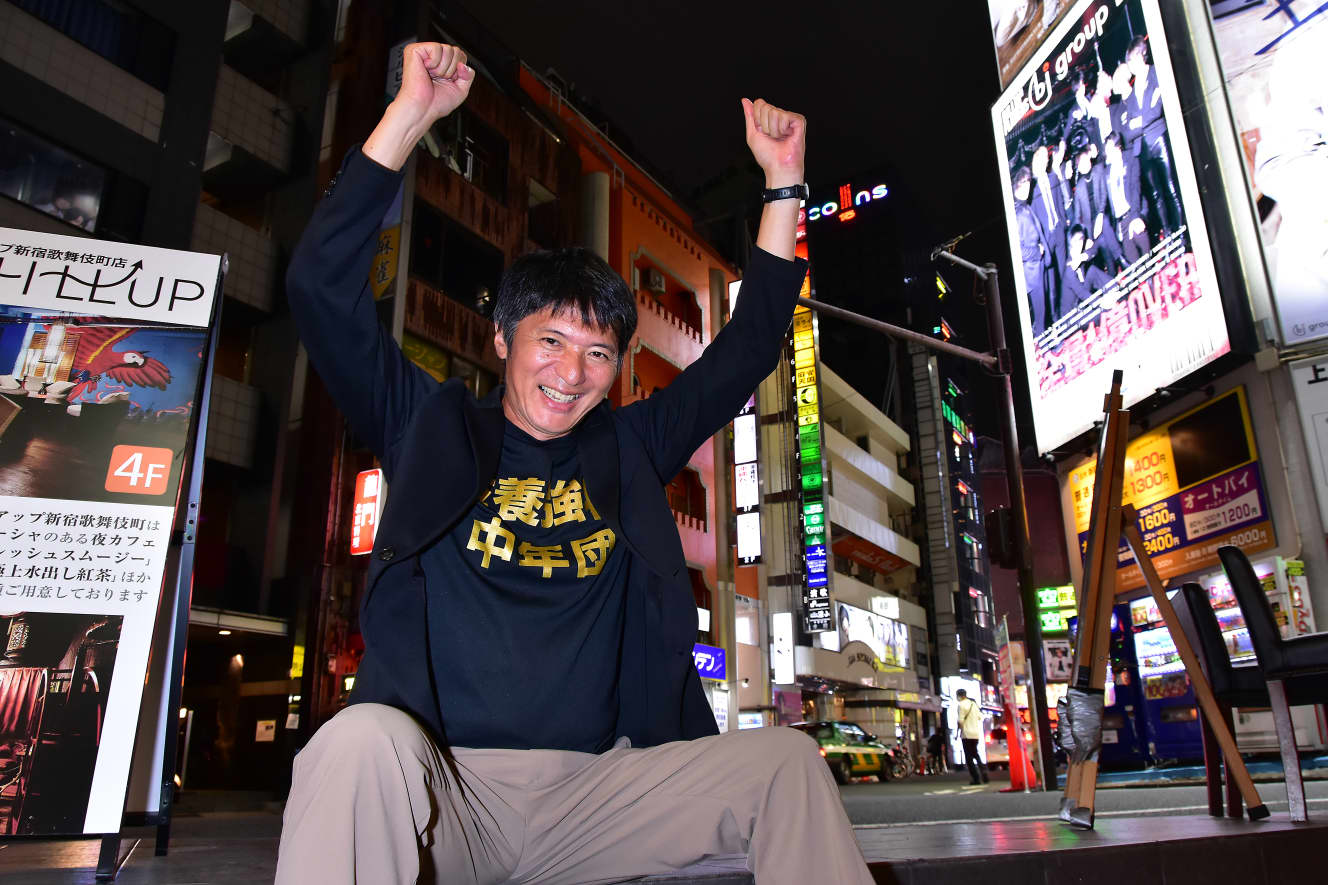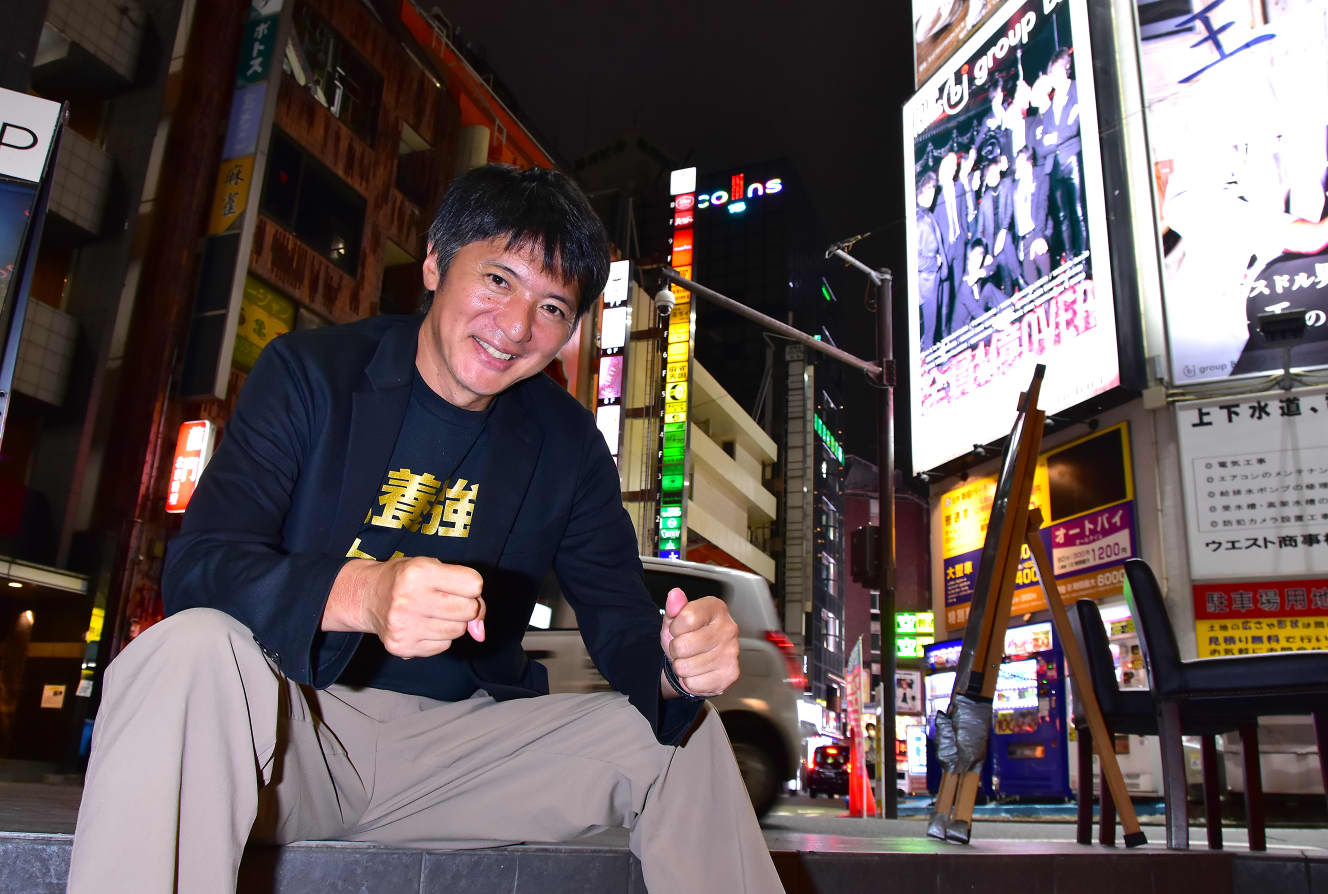Second-generation religious leader Hidekazu Nagai’s confession: “The drama of leaving the church that turned his family against him.
The “sniper attack on former Prime Minister Shinzo Abe” on July 8 and the “Unification Church issue” triggered by the incident are still making headlines. Day after day, the wide TV shows reported on the Unification Church’s large donations, organizational structure, history of its founding, collusion with politics, and the cult-like nature of its doctrines, which spilled over into the “second-generation religious issue.
So many issues and information have remained buried for such a long period of time. We have known about the Unification Church’s ties to politics for a long time. When it came to elections, it was rather well known that people would volunteer for LDP candidates and become their secretaries. But it was not only the LDP. There are quite a few former Democrats as well. The relationship spans many years. So the problem is complicated and deep-rooted.”
─ Mr. Nagai’s parents were members of the Soka Gakkai, and he is what is called a “second-generation religious believer. I think there are many Gakkai members who are reluctant to talk about it in the same context as the Unification Church, but in the sense that you have been a genuine believer since birth, the “second-generation religious issue” is not something that is a matter for others, is it?
You are absolutely right. But I want to make this clear, I have already left the church. It has been 15 years ago. If you search for “celebrities in the Soka Gakkai,” you will find many names. Most of them joined Soka Gakkai of their own volition or after they entered the entertainment industry. But I was different. In other words, I am a “natural born Soka” (laughs). I am a genuine thoroughbred. It may seem surprising, but I was told that I was the “first famous Nisei celebrity. So, when I left the association, the reaction was great. …… “
─ It is surprising that Mr. Nagai is the “first famous Nisei celebrity.
For a long time, Nisei believers were seen by their followers as being less likely to succeed in the entertainment industry. (It may be that the image (of religion) is attached to them, but second-generation believers who are purely cultured will grow up knowing nothing but that world, right? When they go out into the world and are faced with rough times, this doesn’t go well for them.”
─ ─ I remember someone complaining that “those who came out of Keio’s kindergarten are weak and useless.
The history of the Soka Gakkai is much shorter than I thought, and it was only after World War II that it spread throughout the world. Second, third, and fourth sons in rural areas cannot take over the family business and have no land to inherit. They leave for the city to find collective employment, but when they go to an unfamiliar place, they have no place to stay. The Soka Gakkai spread among these people and became a community of mutual assistance. That is how the Soka Gakkai began to spread. My father was the fifth son. He came to Tokyo from Hokkaido and had no friends or relatives. He was not a sociable person by nature. Just at that time, the Soka Gakkai was rapidly gaining power. But at first, he was repulsed, saying, ‘What the hell is it with those guys?
It was then that he met his mother, who had moved to Tokyo from Kyoto. She followed her sister to Tokyo and soon after joined the church. There she met my father, who was a “communist. I think most couples who are members of the Gakkai are like this. But for my father, it must have been a good thing that he joined the church. He didn’t have many friends, but through his faith, he made friends and acquaintances, and was able to find work. In addition, he was able to realize his thoughts and feelings toward society. That is something I would never have been able to do alone.
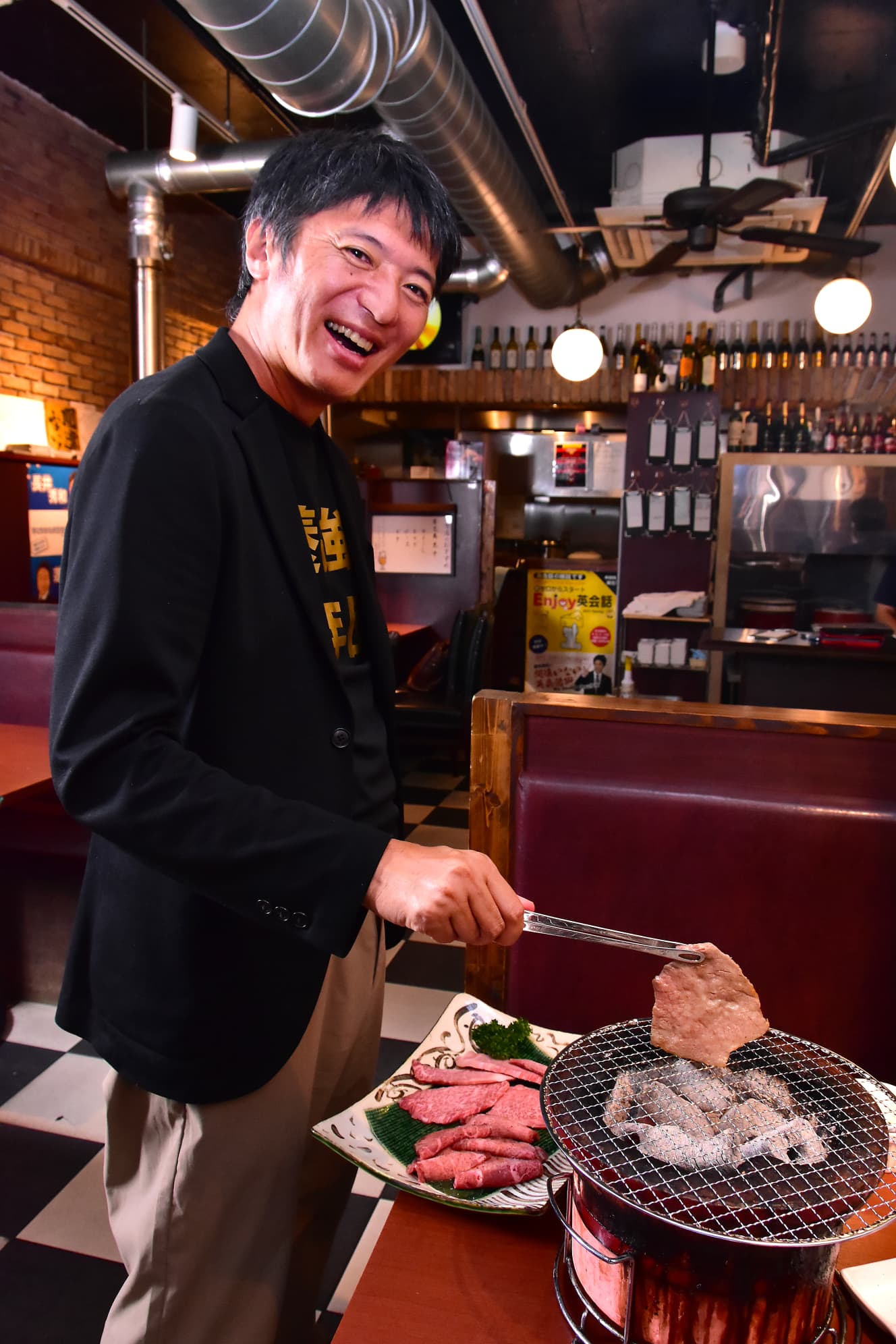
─ Committing to the Soka Gakkai organization was very meaningful for your father. Mr. Nagai was born in Musashimurayama, where he had put down roots and ran a sales office for the Seikyo Shimbun, the official newspaper of the Gakkai. Ever since his birth, he has lived in the world of the Soka Gakkai, hasn’t he? Did you have no doubts at all about the doctrine or the organization?
Mr. Nagai said, “In terms of my environment alone, I am the same as the suspect, Tetsuya Yamagami. However, there were no serious problems like the ones his family was facing. But that doesn’t mean it was all good. Because the neighborhood congregation would gather at our house night after night to chant the Buddhist chanting, so my house was called “Otamotome no Yakata” (the house of the Buddhist chanting). I think it was a nuisance to my neighbors. However, I never questioned such a lifestyle. When I was in the third grade, Soka Elementary School opened and I was immediately transferred to the school and became a first-generation student. My classmates were also relatively similar to that kind of environment, so I didn’t feel out of place.”
─ Did you sometimes meet with Chairman Emeritus Daisaku Ikeda?
Yes, I did. We called him “Ike-chan” in a friendly way, and once he came to an assembly for all the children in the school and gave a speech on the stage. The adults around us cheered him up, saying, ‘Wonderful! They cheered him on. But I couldn’t hear what he was saying. It sounded like a rattling sound, like a gargling sound (laughs). (Laughs.) At the end, the person who gave the general gist of what was being said appeared, and the audience applauded once again. But, well, in a child’s way, I read the air or pretended not to see it (laughs). (Laughs.) Meeting Ike-chan is like a “premium privilege” for the children who study at the elementary school directly affiliated with Ikeda. They envied me, saying, ‘I wish I could just hear your voice once.
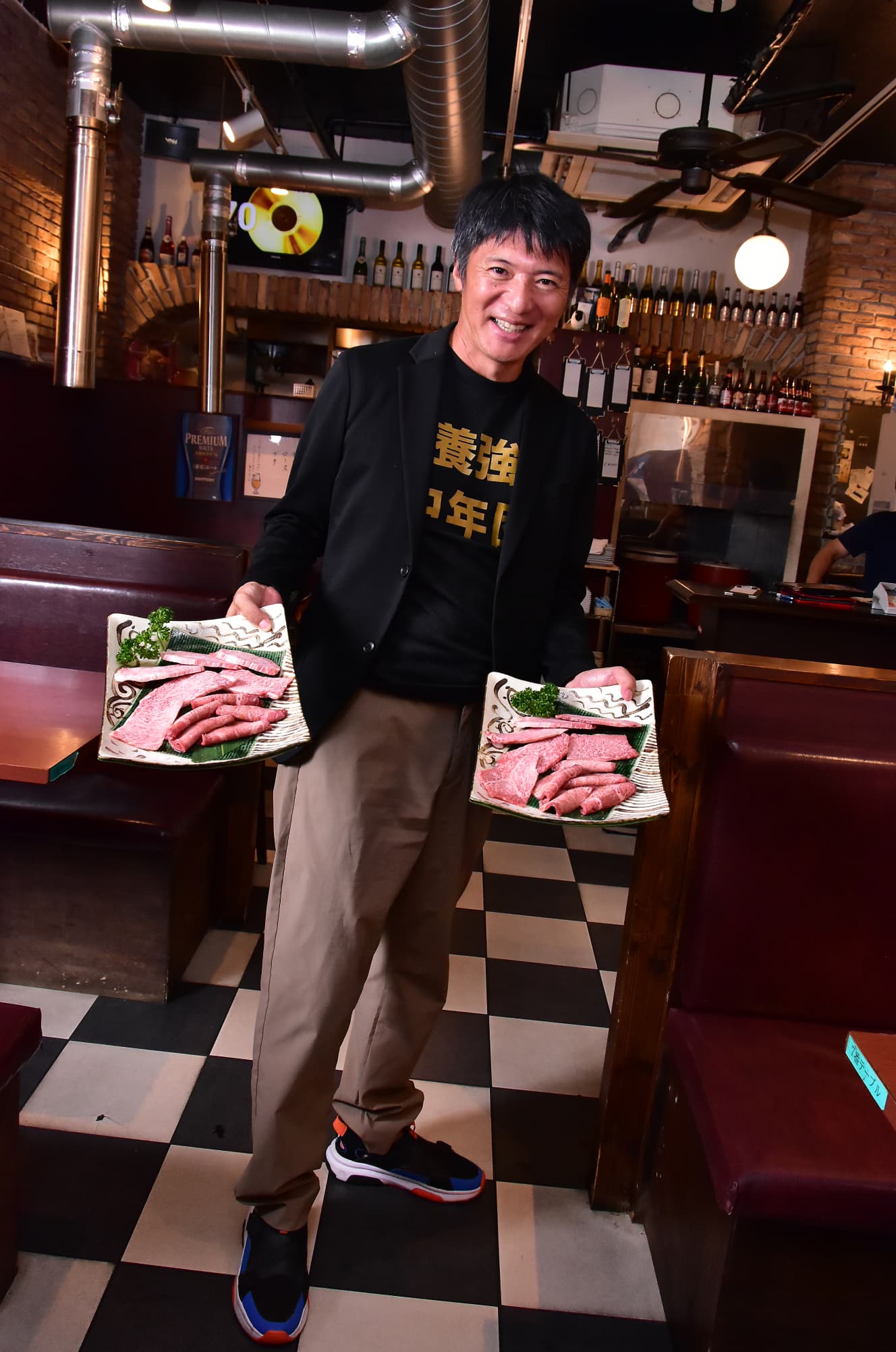
I often hear anecdotes about Nagai. He is a ferocious person, isn’t he, honorary chairman Daisaku Ikeda?
He is quite a man. Ike-chan is definitely capable as an entrepreneur. There is no denying that the Seikyo Shimbun newspaper also spread explosively in accordance with his policies. It’s just that he has a very creative way of doing things.
─ ─ For you, have elections been close since you were a child?
Mr. Nagai: “Elections were much closer to me than they are to most families. First of all, my father was a man who got excited when elections started. Because our house was the sales office of the Seikyo Shimbun, we were the front line, so to speak. When there is an emergency – an election – more people than usual come in and out of the house. They are monks and soldiers who collect votes. Since there are people whose income rises or falls depending on the election results, you could say that they are professional vote collectors.
─ Your father is Takao Nagai, a city councilor who later became a city councilor in Musashimurayama. Do you feel that your father has influenced you?
My father ran for the city council for the first time when he was 52 years old and won. I am now 52 years old, and I am working for the Nishi-Tokyo City Council election in December this year. It is a sign of coincidence, but I sometimes wonder if blood is no contest. But more than anything else, the interesting thing about elections is that the results come out immediately. I felt this strongly even as a child. One of my classmates at Soka Elementary School had a father who was running for national office. For example, remember Katsuya Ikeda, a politician from the New Komeito party who became a member of the House of Representatives but lost his seat due to the recruiting scandal? I was in the same class as the daughter of this Congressman Ikeda. In the old days, national elections used to be held the next day until a certain time. When the election bulletin on TV started on the following Monday, Monday classes at Soka Elementary School were cancelled.
We would watch the election bulletin in class. I was looking forward to it. The whole class would watch the TV and say things like, “Mr. Ikeda’s father has been confirmed! The teacher would also join in the excitement. In the first place, an election is a festival, isn’t it? It is the same for the Soka Gakkai. During elections, men and women, who are usually active separately, come to work together. This way, by the time the election is over, several couples are formed. You remember the “Love Wagon” car that appeared in a love-observation variety show called “Ainori” (Fuji TV) once? It was like the election car became the Love Wagon (laughs).
(Laughs.) ─ Among the members of the congregation, there were some who couldn’t get together with anyone, weren’t there?
That’s where my father, Takao Nagai, came in. He has helped many Gakkai members, men and women, who could not get together with anyone, get married. He probably served as a matchmaker for about 50 couples. He was a typical community caretaker. But not only that, he also had no small influence on Komeito’s subsequent policies. For many years, Hatsumode, Bon Odori, and Christmas were considered unrelated for Soka Gakkai members, but it was my father who objected to this policy.
I see. I have heard that many couples have broken up because of this.
I myself didn’t like Hatsumode and Christmas that much, so I didn’t think anything of it, but one day my father said to me, ‘You can’t win an election by saying that Hatsumode and Christmas are bad! He said. He told me to have enough sense to take advantage of an out-of-the-way event (i.e., Christmas). After all, he appealed directly to then President Einosuke Akiya, and the policy was overturned. My father was so passionate about the election that he used to say, ‘If I have to win an election, I will join hands with the Communist Party.
Hidekazu Nagai was born as a second generation religious person and grew up in the environment of Soka Elementary, Middle, and High Schools. He entered Soka University and followed an “elite course” until he decided to become a comedian.
He said, “It is a very honorable thing for a man to send his son or daughter to a university directly affiliated with his family, as it is an achievement of faith. In fact, they are treated as elites within the organization, and their parents are proud of them. This is usually the case for those who go on to become executives from the head office staff. So, even now, my mother often says to me, “If you had done as you were supposed to do, you would be a member of the New Komeito by now.
(Laughs.) However, I started aspiring to be a comedian when I entered university, and I gradually started working as a comedian while I was still in school. I was not interested in the elite course. This is not limited to me, but it is a common phenomenon among second-generation religious people. So I gradually drifted away from my faith. The fact that there were almost no members of the society among the comedians around me was also a big factor. They never talked about it at all. Sometimes, when I went home to my parents’ house, my father would say to me, ‘You should chant the title of the scriptures.
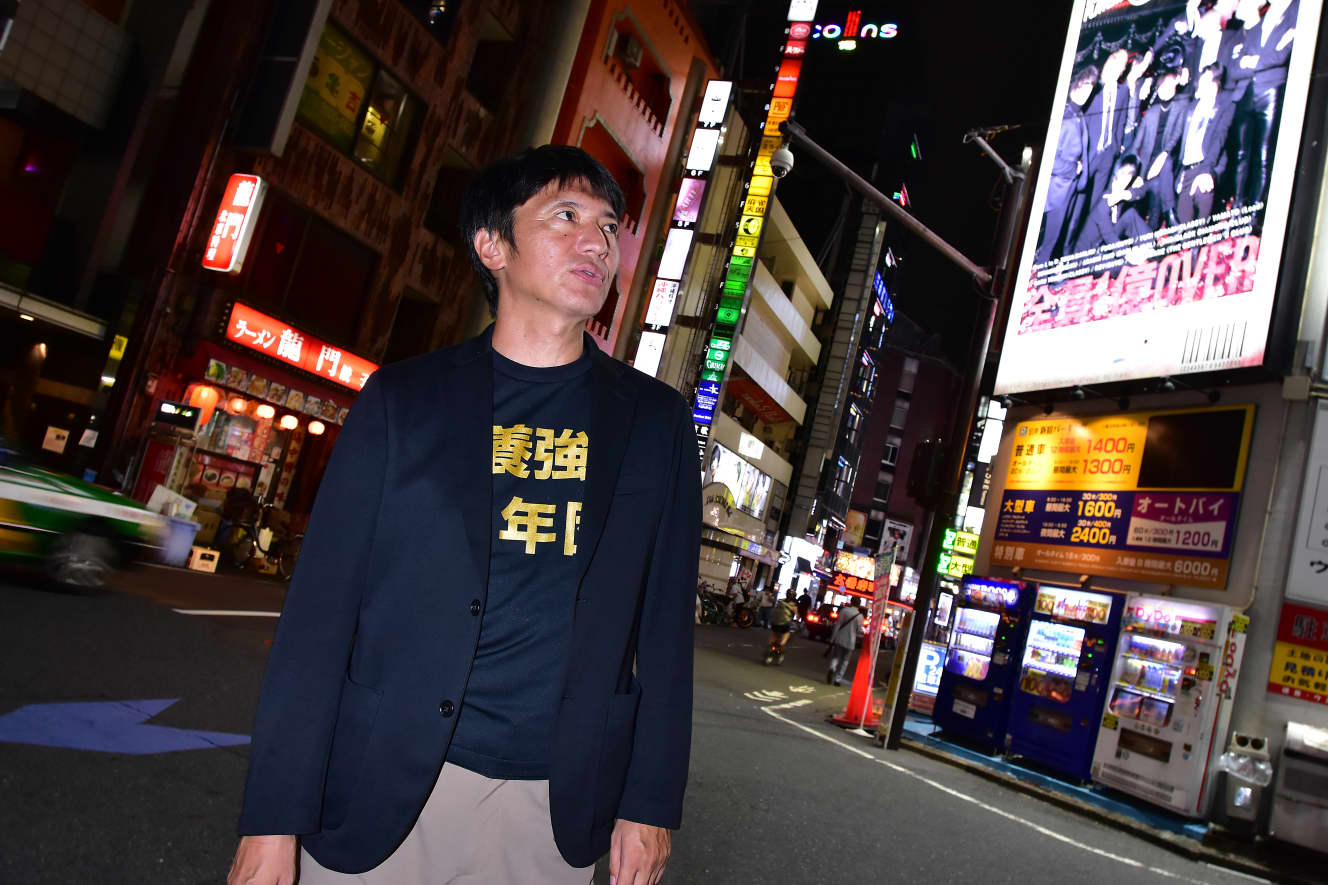
───Mr. Nagai’s breakthrough as a comedian came in 2003 when he appeared on “Entanokami” (God of Entertainment) on Nippon Television Network Corporation. Surprisingly, this led to a closer relationship with the Soka Gakkai, which had been on the verge of weakening.
The Soka Gakkai has a department called the “Art Department. Celebrities belong to the Art Department, and they are, to put it simply, billboards. In fact, when celebrities came to the association’s events, everyone was delighted, and Ike-chan had a habit of lifting them up to the extreme, saying things like, “The Art Department is the flower of Soka. Not just any celebrity can join, and moreover, it requires six months of training. You are thoroughly drilled into the mindset of being a member of the art club. Then one day, I found myself in the art club. When I said, ‘I didn’t take the training,’ the person in charge told me, ‘No, no, Mr. Nagai is fine.
In my case, I didn’t sell slowly, but rather rapidly, so I was promoted before I knew it. As I said before, for many years, it was seen as ‘difficult for a second-generation believer to succeed in the entertainment industry. And yet I sold like hotcakes. Moreover, I was a thoroughbred who went to Soka Elementary School and then Soka University. This seemed to be quite a shock, and popular actresses, comic storytellers, and other second-generation believers followed my lead. I was the first to make a name for myself, and popular actresses, comic storytellers, and other second-generation believers followed.
─ I have always wondered, does the head office of the Soka Gakkai know all the followers of famous people?
I have always wondered, does the Soka Gakkai headquarters know all the members of the celebrities? There are some celebrities that even the head office doesn’t recognize, but they are few and far between. There was a rumor on the Internet once that “all SMAP members are Gakkai members. I was surprised at this, and when I asked a female celebrity who was a senior member of the art club, she said, ‘That’s not true at all. One day, I was having dinner with someone I had never met before, and she said, “I heard that SMAP is a member of the Gakkai. He didn’t even know I was a member of the society. I told him, ‘That rumor is wrong. Ordinary believers tend to be easily misled by such information, and they are happy to think, ‘He is a believer like us! They are happy to know that he is a believer just like us.
─ ─ From there, he became a kind of a billboard as “Hidekazu Nagai of the Art Department,” but what left a lasting impression on me was the 2007 House of Councillors election. I remember the 2007 House of Councillors election, when you went along with the election campaign and worked at full capacity.
My father always asked me to support his campaign, and the Gakkai’s headquarters made a specific request to me, saying, “Saitama is struggling, so I want you to focus on Saitama. I took the job as a way of repaying the favor. I went to Kawagoe, Kumagaya, Fukaya, Sayama, and Chichibu…… quite a bit. I had been watching my father’s election for some time, so I knew something about it, but I was really surprised at how accurately the Gakkai read the votes. The greatest content that the Soka Gakkai has created in the world is the accuracy of its vote-collection system. So I don’t want to read a fantasy book called “Human Revolution,” I want to read a book called “The Vote-Collection Revolution” by Ike-chan!”
Nagai’s full participation in the 2007 House of Councillors election was widely covered by the mass media, and he was even seen as a “stepping stone to entering politics. However, life is unpredictable, as Nagai’s election campaign became an opportunity for him to leave the Soka Gakkai.
During the campaign, I had frequent opportunities to sit down with Gakkai leaders, and they all had bad things to say about Ike-chan. They talked about Ike’s policies, direction, and even his human nature. That’s one of the reasons I studied the doctrine again. Starting with Buddhism, then Nichiren, and then the Lotus Sutra……, I came to the conclusion that the Gakkai was full of contradictions and did not constitute a religion. I hesitated for a while. This was not about myself, but about my parents. Being in the Art Department, a place of great influence, it was only natural that there would be a hullabaloo if I were to leave the Society.
My father wasn’t already an incumbent city council member, but he had started a non-profit organization and was indirectly involved in the mayoral campaign, so I was sorry to make his position worse. Still, I wouldn’t have the faith to continue lying about my feelings. Naturally, I had a big argument with my parents. The Unification Church uses the word “Satan” to describe their attack on departing believers, but the Soka Gakkai has a common phrase, “I was eaten up by demons. They used to say about me, ‘I was eaten up by the devil because of my pride in my heart. My mother also seemed sad.
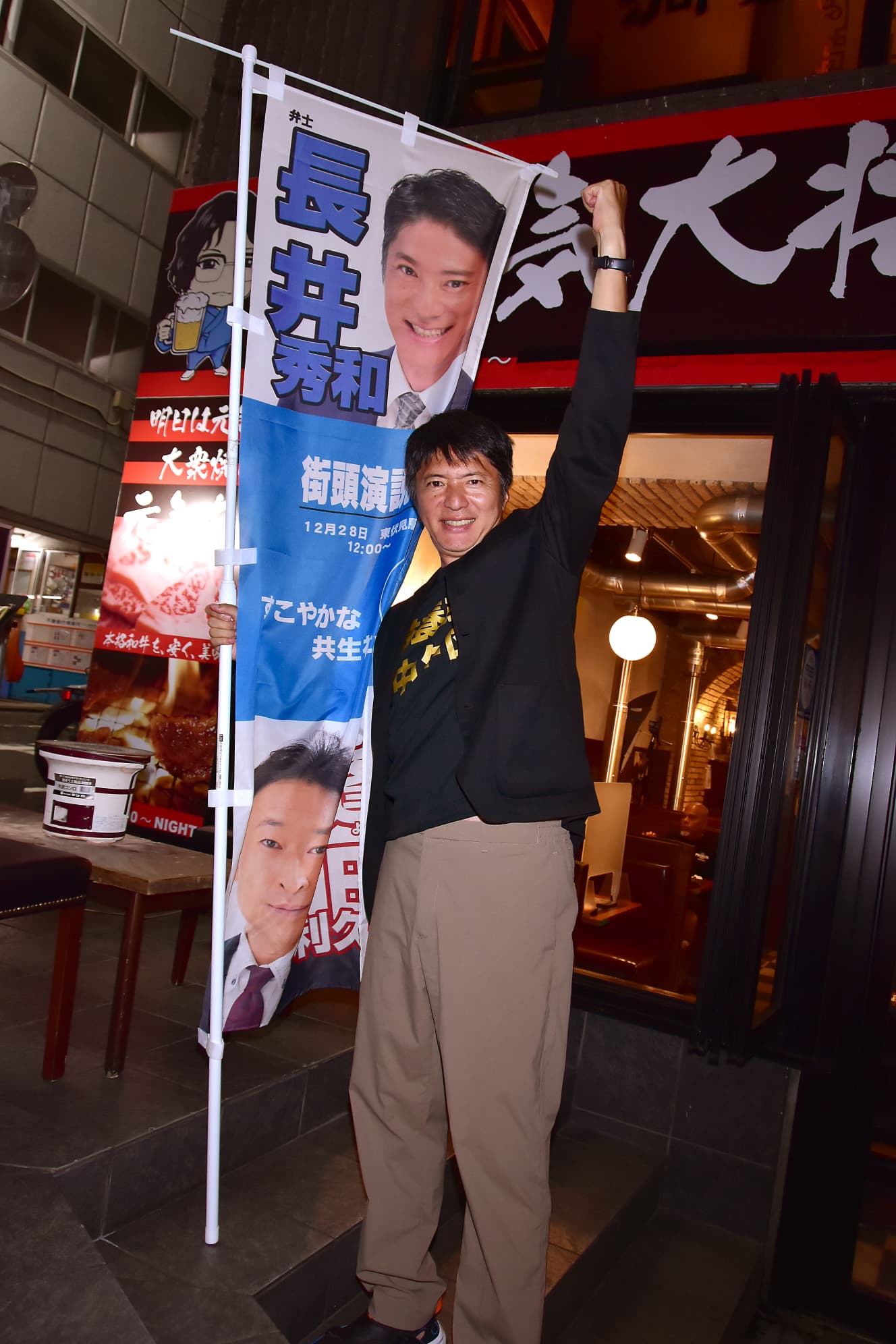
Mr. Nagai’s father, who vehemently opposed his secession from the association, passed away in 2018, and although he may not be following in his father’s footsteps, he is trying to follow the same path of politics as his father. Nishi-Tokyo City Council election to be held. I hear that there are many hardships and obstructions because you have left the association.
Sometimes people come to me and say things like, ‘Are you denying your father’s life? My father passed away four years ago, and they say, ‘Can you say such a thing to your father who hid behind a blade of grass? But I have talked directly with my father himself. I have already denied my father. Just because we are father and son doesn’t mean I can agree with everything he says. But as long as he says it directly to me, it’s still fine. The problem is indirect interference and insidious. Having posters torn down is just the beginning. I go and complain to the people who let me put up the posters. We tell them false rumors, saying, ‘He’s a criminal. If they still put up the posters, I say, ‘How long are you going to keep putting them up? It’s not good! People are also neighbors, and I am disgusted with human beings.
In the Soka Gakkai, there is a practice of designating unforgivable people as “Buddhist enemies,” pasting their names on the wall and chanting a mantra to eradicate them so that they will be punished by the Buddha. Perhaps I am the target of this. That’s fine, but my younger brother is a reporter for the Seikyo Shimbun, and his boss says to him, ‘Shut your brother’s mouth! ‘ and he is being told quite a bit (laughs). In my case, the big thing was that I wasn’t eating at the conference.
For example, there are probably many singers and musicians who have their congregations buy tickets for them or get them jobs such as concerts from the Min’on (General Incorporated Foundation, Democratic Music Association = an organization affiliated with the Soka Gakkai). I do not write a column in the Seikyo Shimbun or have a series of articles in the Third Civilization. Other people eat at academic conferences, so I don’t think it would be easy for them to do so.
─ By the way, what did your mother say about your running for office this time?
My mother said at first, ‘I wish you wouldn’t do it. She is still a member of the academic society, so she has her own position. But recently, she has finally said to me, ‘Being a councilor is a noble job, so I think it would be good if you could do it. I sometimes go back to my parents’ house to see how things are going. Even though we are father and son, I respect that. The other day, however, the gas in my parents’ bathtub was old-fashioned and difficult to use, so I gave them a large sum of money and told them that they should replace it with a new one. When I came home a few months later, they hadn’t fixed it. He said, “It’s okay, it’s still usable. Apparently, he had donated the money to the headquarters.
The other day, I gave him some money again, telling him to see a good doctor because he had been suffering from back pain for a while, and he donated that money too. I told him, ‘It’s okay, I’m just returning the favor,’ and rubbed his back. This is a repetition. As long as I don’t call a vendor or book a hospital appointment directly, the money is siphoned off by the organization. It’s a perfect vicious cycle.
─ That’s the reality of donations, isn’t it?
I am not a member of the Unification Church, and I am independent, but that is how the cycle of poverty is created. I think this problem is common to several religions, not just the Unification Church. I think every religious group has a common power word among its congregation that spurs donations, ‘space bank. It’s not a megabank, it’s a terabank. Instead of donations, they say, “Let’s accumulate virtue by donating to the Space Bank” (laughs). (Laughter) And the amount of donation determines the hierarchy within the organization. It is obviously strange. One member of the society always says, “Let’s fight a three-digit battle,” which in essence means, “Let’s donate in units of 1,000,000 yen. As long as these values are the norm, it will be difficult to solve the problem.
─ Religious issues are seen as a problem in which it is difficult to intervene. Do you ever include it in your campaign promises or speeches?
There was an event called “Peace Road Kita Tama 2020” in Nishitokyo City before, and it was an event organized by an organization affiliated with the Unification Church. It was a big event using public funds. That issue, of course, must be investigated. There are far more second-generation religious people who are suffering than others can imagine. Yet, people around them marginalize and discriminate against them, saying, “That person is a member of the Unification Church,” or “That family belongs to the Soka Gakkai. In some cases, they feign indifference. Alienation is not the solution. In fact, it has the opposite effect. It is not about care, but first of all, I think it is necessary to raise the awareness of the fundamental problem among the general public.
